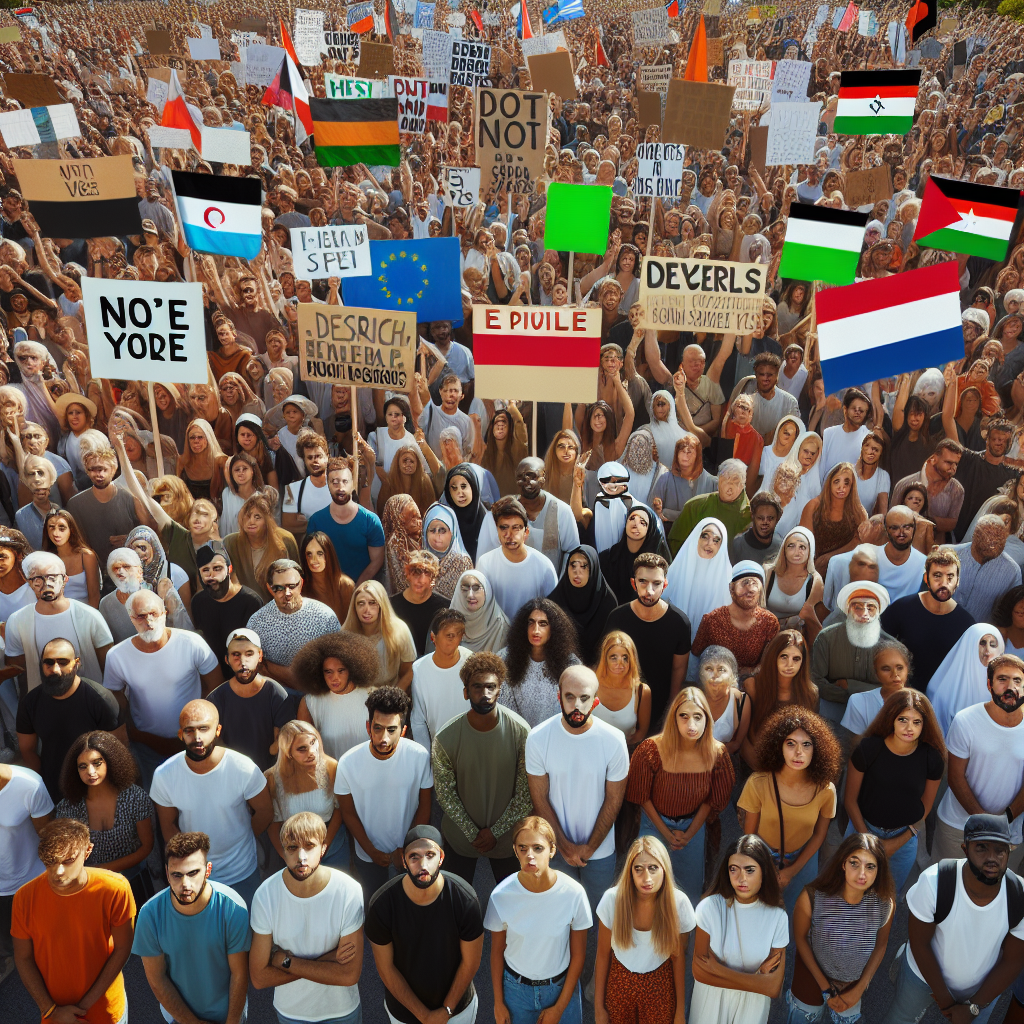Demonstrators Oppose Israel’s Involvement in Eurovision
Demonstrators Oppose Israel’s Involvement in Eurovision
Background
Eurovision, the annual international song competition, has become a platform for cultural exchange and entertainment. However, it often intersects with political issues, as seen with the recent protests against Israel’s participation.
Reasons for Opposition
Demonstrators have voiced several concerns regarding Israel’s involvement in Eurovision:
- Political Stance: Many protesters argue that Israel’s policies and actions in the Palestinian territories are inconsistent with the values of peace and unity that Eurovision promotes.
- Human Rights Concerns: Activists highlight alleged human rights violations by Israel, calling for a boycott to pressure the country into policy changes.
- Platform for Protest: Eurovision’s global stage is seen as an opportunity to draw international attention to the Israeli-Palestinian conflict.
Protest Activities
Various forms of protest have been organized to express opposition:
- Public Demonstrations: Large gatherings in major cities have been organized to raise awareness and show solidarity with the Palestinian cause.
- Social Media Campaigns: Activists have utilized platforms like Twitter and Instagram to spread their message and garner support worldwide.
- Petitions: Online petitions have circulated, urging Eurovision organizers to reconsider Israel’s participation.
Responses and Reactions
The protests have elicited a range of responses:
- Eurovision Organizers: The organizers have reiterated their commitment to keeping the event apolitical, emphasizing its role in fostering cultural exchange.
- Israeli Government: Officials have defended their participation, arguing that cultural events should not be politicized.
- Public Opinion: The issue has sparked debate among Eurovision fans, with some supporting the protests and others advocating for the separation of politics and entertainment.
Conclusion
The opposition to Israel’s involvement in Eurovision highlights the complex interplay between politics and cultural events. While the protests aim to spotlight significant geopolitical issues, they also raise questions about the role of international platforms in addressing such concerns. As Eurovision continues to navigate these challenges, the conversation around cultural diplomacy and political expression remains as relevant as ever.






































